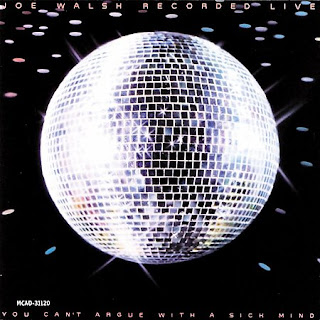"Islands " is the seventh studio album by the Canadian-American rock group The Band. It was recorded in the group's Shangri-La studios and released in 1977.
Theoretically, even though the Band had given up touring as of Thanksgiving 1976, they were going to keep making records, and "Islands " was the first album released in the new era. Only it wasn't; it was the album they scraped together to complete their ten-LP contract with Capitol Records and the last new full-length album the original five members ever made. The playing, as ever, was impeccable, and the record had its moments, notably a Richard Manuel vocal on the chestnut "Georgia on My Mind" that had been released as a single in 1976 to boost Georgia Islands couldn't help suffering enormously in comparison. The late Rick Danko's vocals on 'Street Walker' and the alluring gem 'The Saga Of Pepote Rouge' are highlights. Garth Hudson
But those emotional lyrics are for some reason matched with disappointingly upbeat and bland music, and weak moments like 'Let the Night Fall' and a cover of the standard 'Ain't That A Lot of Love' drag the album down a bit. The title track, an instrumental, doesn't sound like a Band song at all, but rather an empty 70s-style take.
Tracklist
01. Right as Rain (Robbie Robertson) - 3:52
02. Street Walker
03. Let the Night Fall (Robertson) - 3:11
04. Ain't That a Lot of Love (Banks, Parker) - 3:09
05. Christmas Must Be Tonight (Robertson) - 3:38
06. Islands (Danko, Garth Hudson, Robertson) - 3:54
07. The Saga of Pepote Rouge (Robertson) - 4:14
08. Georgia
09. Knockin' Lost John (Robertson) - 3:50
10. Livin' in a Dream (Robertson) - 2:52
Personnel
Rick Danko – bass guitar, vocals
Levon Helm – drums, vocals
Garth Hudson
Richard Manuel – acoustic and electric pianos, vocals
Robbie Robertson – guitars, vocals
James Gordon – flute
Tom Malone – trombone
John Simon – alto saxophone
Larry Packer – violin
Notes
Released: March 15, 1977
Released: March 15, 1977
Recorded at: Shangri-la Studios; Village Recorders, Los Angeles , CA
Genre: Country Rock
Length: 35:15
Label: Capitol
Producer: The Band


















